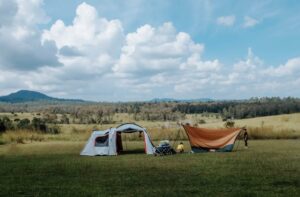Learning a new language in a month is an ambitious goal, but with dedication and effective strategies, it’s definitely achievable. Here are 20 tips to help you make the most of your language learning journey and accelerate your progress:
1. Set Clear Goals: Define specific, achievable language learning goals for the month.
2. Immerse Yourself: Surround yourself with the language as much as possible by watching movies, TV shows, and listening to music in that language.
3. Learn Basic Phrases: Start with essential phrases for everyday situations to build a strong foundation.
4. Flashcards: Use flashcards to memorize new vocabulary and practice regularly.

5. Practice Speaking: Engage in conversations with native speakers, language exchange partners, or language tutors.
6. Language Apps: Utilize language learning apps with interactive exercises and quizzes.
7. Language Meetups: Join language meetups or online language communities to practice with other learners and native speakers.
8. Keep a Language Journal: Write in your target language daily to improve writing skills and track your progress.
9. Use Mnemonics: Create mnemonics or memory aids to remember challenging words or grammar rules.
10. Practice Every Day: Consistency is key. Spend time practicing the language daily, even if it’s just for a few minutes.
11. Language Learning Websites: Explore language learning websites that offer free resources and lessons.
12. Learn Language through Culture: Learn about the culture of the language you’re studying to better understand its nuances.
13. Speak Aloud: Practice speaking the language out loud to improve pronunciation and fluency.
14. Language Games: Play language learning games to make the process enjoyable and engaging.
15. Focus on High-Frequency Words: Prioritize learning high-frequency words that are commonly used in everyday speech.
16. Review Regularly: Set aside time to review previously learned material to reinforce your knowledge.
17. Record Yourself: Record yourself speaking the language and listen for areas of improvement.
18. Use Social Media: Follow social media accounts in your target language to see real-life usage.
19. Stay Positive: Stay motivated and positive throughout the learning process, even when facing challenges.
20. Celebrate Progress: Celebrate your milestones and achievements, no matter how small.
Remember, language learning is a journey, and fluency in a month might not be attainable for everyone. However, with these tips and a growth mindset, you can make significant progress and set a strong foundation for further language development. Be patient with yourself and enjoy the learning process—it’s a rewarding adventure that opens up new opportunities and enriches your understanding of the world.
Related Posts
20 tips on how to learn a new language in a month1. Set a clear goal and a deadline for learning. 2. Create a daily schedule for studying. 3. Start with the most common words and phrases. 4. Learn basic grammar rules. 5. Practice speaking every day, even if it's just to yourself. 6. Listen to music and watch TV shows in the language you're learning. 7. Use language learning apps like Duolingo and Babbel. 8. Immerse yourself in the language by surrounding yourself with native speakers or listening to podcasts. 9. Use flashcards or other memorization techniques to learn new vocabulary words. 10. Make mistakes and learn from them. 11. Join language exchange groups online or in-person. 12. Keep a notebook to write down new words and concepts. 13. Focus on communication rather than perfection. 14. Practice with a language tutor or coach. 15. Try to think in the language you're learning. 16. Stay motivated by setting mini-goals and celebrating…
Create your own quizzes to learn a new languageUsing quizzes can be a fun and effective way to learn a new language. Here are 20 tips to make the most out of language quizzes: 1. **Start with basics:** Begin with simple vocabulary and grammar quizzes to build a foundation in the language. 2. **Use spaced repetition:** Create or find quizzes that incorporate spaced repetition, which reinforces learning by repeating words and concepts at increasing intervals. 3. **Focus on relevant topics:** Choose quizzes that cover topics you're interested in or that are relevant to your language learning goals. 4. **Vary quiz types:** Mix up different quiz formats like multiple-choice, fill in the blanks, audio quizzes, and writing exercises to keep things engaging. 5. **Practice regularly:** Consistency is key to language learning. Set aside dedicated time for quizzes regularly. 6. **Review and analyze mistakes:** Pay attention to the mistakes you make in quizzes and use them as learning opportunities. 7.…
Mastering a New Language in One Month: A Step-by-Step GuideLearning a new language can be an exciting and rewarding challenge, and while fluency in just one month may seem ambitious, it is indeed possible to make significant progress. While becoming fully fluent in such a short timeframe is not realistic, with dedication, efficient strategies, and consistent practice, you can acquire a solid foundation and functional knowledge of a new language. This article will outline a step-by-step guide to help you maximize your language learning potential in just one month. Step 1: Set Clear Goals Define your language learning objectives. Be realistic and specific about what you want to achieve in a month. Whether you aim to hold basic conversations, understand essential phrases, or read simple texts, having well-defined goals will keep you focused and motivated throughout the learning process. Step 2: Choose the Right Language Select a language that aligns with your interests, career aspirations, or travel plans. Opting…
Favorite travel destinations in Scandinavia1. Copenhagen, Denmark - known for its stunning architecture, colorful houses, and iconic biking culture. 2. Oslo, Norway - a perfect blend of modern architecture and natural beauty, featuring fjords, glaciers, and mountains. 3. Stockholm, Sweden - known as the "Venice of the North", it is made up of 14 islands connected by bridges, featuring historic landmarks and a vibrant nightlife. 4. Reykjavik, Iceland - offering unique experiences such as the Northern Lights and the Blue Lagoon, as well as stunning landscapes. 5. Helsinki, Finland - the capital city offers a mix of modern and traditional Finnish culture, with museums, art galleries, and stunning architecture. 6. Bergen, Norway - known as the gateway to the fjords, it offers amazing views of the surrounding nature. 7. Lapland, Finland - a winter wonderland where you can experience the midnight sun, husky rides, skiing, and meet Santa Claus.
Learn how to knit as a hobbyLearning how to knit can be a wonderful and rewarding hobby for those seeking to engage in a creative and relaxing activity. Knitting is a craft that has been enjoyed for generations, and is becoming increasingly popular as a pastime for those looking to unwind and connect with a like-minded community. To begin learning how to knit, it is important to gather the necessary supplies, such as yarn, knitting needles, and a pattern or resource materials. There are a variety of different types of yarn and needles to choose from, depending on your personal preferences and the project you are interested in taking on. Once you have gathered your materials, it is time to get started! Knitting involves a series of basic stitches and techniques that are easy to learn and master with practice. Online tutorials and instructional resources can be particularly helpful in learning the basics of knitting, as…
How to learn faster with help of quizzesQuizzes are a wonderful learning tool that can help you learn faster by reinforcing your memorization of the subject matter. Here are some ways to use quizzes to learn faster: 1. Take quizzes frequently: Taking quizzes on a regular basis, especially after studying a new topic or lesson, can help you recall important information more easily. 2. Create flashcards: Create flashcards to test your knowledge of key concepts and terms. You can use digital apps like Quizlet or traditional tools like index cards. 3. Participate in online quizzes: Participate in online quizzes and engage with the community around the topic. This way you can learn from others or challenge each other. 4. Review your mistakes: Don't just ignore wrong answers, learn from them. Review your mistakes and take notes on what you got wrong and why. 5. Mix it up: Try different types of quizzes like multiple choice, true/false, fill-in-the-blank,…
How to become a travel agent and work from home1. Get the necessary education or training: A high school diploma or equivalent is required to become a travel agent. But, getting a degree or certification in travel and tourism can give you an advantage. 2. Gain work experience: It is important to have experience in the travel industry. You can start by working for a travel agency or any other travel-related business. 3. Get a license: Some states require travel agents to have a license before they can operate. Check with your state's licensing requirements and get the necessary license. 4. Join a professional association: Joining a professional association, such as the American Society of Travel Agents (ASTA), can help you network with other travel agents and gain access to industry news and resources. 5. Set up your home office: In order to work from home, you need to have a dedicated workspace with the necessary equipment and internet…
Steady Internet Access During Your TravelIn the digital age, the internet has revolutionized the way we travel. Gone are the days of relying solely on guidebooks and physical maps; today, travelers have access to an abundance of information and resources at their fingertips. The convenience of using the internet during travel cannot be denied, but it also comes with its unique set of challenges that adventurers must navigate. This article explores the benefits of using the internet while traveling and discusses some of the common challenges faced by modern globetrotters. 1. The Advantages of Using the Internet During Travel a. Seamless Trip Planning: The internet offers a vast array of resources to assist travelers in planning their journeys. From booking flights and accommodations to researching local attractions and activities, the internet streamlines the process and allows for greater flexibility. b. Real-time Navigation: GPS and mapping apps have revolutionized navigation. Travelers can easily find their way…
The Ultimate Travel Checklist: What to Pack for Your AdventurePreparing for a travel adventure can be exciting, but it's essential to have a well-thought-out packing checklist to ensure you have everything you need for a smooth and enjoyable journey. Here's the ultimate travel checklist to help you pack for your adventure: 1. Travel Documents: - Passport/ID - Visa (if required) - Travel insurance information - Flight/train tickets - Itinerary and hotel reservations - Driver's license (if needed) - Any necessary vaccination certificates 2. Money and Essentials: - Sufficient cash in the local currency - Credit/debit cards - Travel wallet or money belt - Emergency contact information and important phone numbers - Health insurance cards 3. Technology and Entertainment: - Smartphone and charger - Travel adapter and converter (if needed) - Camera and extra memory cards - Portable power bank - E-reader or physical books - Headphones/earbuds 4. Personal Care Items: - Prescription medications and copies of prescriptions - Personal…
Unraveling the Unexpected Fees in TravelPlanning a trip can be both exciting and overwhelming, with countless details to consider. From booking flights and accommodation to mapping out an itinerary, travelers often devote their time to crafting the perfect vacation experience. However, amid the enthusiasm, there exists a lurking menace that can quickly turn travel dreams into a financial nightmare: unexpected fees. Unforeseen charges can crop up at various stages of the travel journey, leaving travelers feeling perplexed and cheated. In this article, we explore some of the most common unexpected fees in travel and offer tips on how to avoid falling prey to them. 1. Baggage Fees Airlines have become notorious for hidden baggage fees, catching many travelers off-guard. After securing what seems like a great flight deal, they discover that checking a bag comes with a hefty additional cost. To avoid this unpleasant surprise, travelers should thoroughly research an airline's baggage policy before booking.…


